 Introduction
IntroductionTo die would be an awfully big adventure.
P ETER PAN
I f a man dies, will he live again?
Four thousand years ago, in the wake of deep personal tragedy, suffering, and death, a man named Job asked the question of the ages (Job 14:14). Since the dawn of history, the subject of death and the afterlife has been the great question of human existence.
Not long ago the Discovery Channel featured a program about the ten great mysteries of the world. The mysteries included the lost city of Atlantis, UFOs, Bigfoot, Stonehenge, and the Loch Ness Monster. But the overwhelming number one mystery was life after death. It's a subject that everyone wonders about. What lies behind the veil of death? Is there really life after our final breath? Is there a place called hell? Does purgatory actually exist? Is heaven a real place? Who will be in heaven?
More Americans than ever81 percentnow say that they believe in life after death. Since the turn of the century, belief in an afterlife among American Catholics, Jews, and those with no religious affiliation has grown significantly. Even so, as more people profess to believe in life after death, it seems that most don't have much of an idea about what happens to people when they die. Questions abound. Inquiring minds want to know.
In this answer-packed, fast-paced book I want to clearly and simply address the real questions that people like you and me have about what awaits us beyond the grave.
The Bible doesn't answer all the questions we have about the afterlife, but I think you'll be amazed at how much the pages of Scripture do reveal about this intriguing topic.
Join me as we take a sneak peek behind the curtain of death, as we see what the Bible says about death and the reality of life after life.
My prayer is that God will use this book to help us live more faithfully for Christ in this lifeand long more fully to be with Him in the next.
Mark Hitchcock
Faith Bible Church
Edmond, Okhhoma
PART ONE
 Unlocking Life's Greatest Mystery
Unlocking Life's Greatest Mystery
Chapter 1
WHAT IS DEATH?
B efore we can understand life after death, we must first get a handle on what death means. What does the Bible tell us about death? What are some of the key truths about death that we need to understand?
Here's a big one right off the top: The Bible teaches us that death comes quickly. I heard a story recently about a man who went to the doctor. The conversation went like this.
I'm afraid I have bad news, Mr. Smith, said the doctor. You dont have long to live.
Really? said the patient. How long?
Ten, said the doctor.
Ten? asked the patient. TEN! Ten what?Tzn months? Ten weeks? What?
The doctor responded, Nine, eight, seven, six
One of the truths the Bible emphasizes again and again is the brevity of human life. Every picture of human life in the pages of Scripture stresses its ephemeral nature.
The duration of human life is pictured as a flower that blooms in the morning and withers in the afternoon sun, a shadow that appears and fades away, a morning mist or fog that dissipates with the rising sun (Job 14:2; Psalm 90:5-6).
A Sharper Image catalog a few years ago advertised a Personal Life Clock. In a crisp, full-color image, the catalog displayed a marble obelisk with digital numbers that flashed the number of hours, minutes, and seconds remaining in ones statistical lifetime. The sales copy noted, All lives are finite. In fact, the average life lasts only 683,280 hours, or 2.4 billion seconds. This new Timisis Personal Life Clock reminds you to live life to the fullest by displaying themost profound number you will ever see.
A few years ago, when Billy Graham was in his early eighties, an interviewer asked him what had surprised him most about life. Without hesitation, Dr. Graham replied, Its brevity. The older we get, the faster the sands of time seem to leak through the glass. One important thing the Bible and experience teach us about death is that it comes quickly.
Here's another central biblical truth about death: In not the end. I once heard a story about an ancient king who called a group of scholars to his palace to write a history of mankind. As they labored through the years, the scholars compiled numerous volumes. The king, however, was always too busy to read them. When the king was very old, he again called the scholars to the palace and asked them to give him a summary of their findings. The leader of the group said, Man was born, he suffered, he died. That is the history of mankind.
There's a lot of truth in that summary.
But it's not complete.
What about after he died? Death is not the end of man's history. Death in the Bible always means separation, never annihilation or cessation of existence.
In the Garden of Eden, remember, God told Adam that the day he ate of the fruit of the tree of the knowledge of good and evil he would surely die (Genesis 2:17). When our first parents disobeyed that command, they did not immediately fall over dead. But in that moment, they began to die physically. Adam died 930 years later. But the very instant they ate the fruit, they died spiritually, just as God had said. They found themselves separated and alienated from God. Adam and Eve sensed their guilt and shame before God and made garments out of leaves to cover their naked bodies and hide their sin.
A person who is spiritually dead is a person who is spiritually separated from God (Ephesians 2:1). Likewise, when a person dies physically, he or she does not cease to exist. There is a separation between the material part (body) and immaterial part (soul/spirit) of the person. When this separation occurs, the body falls asleep; and is buried. But the soul, the immaterial part of the person, goes to one of two places.
In the Bible there are three different aspects to death. But in each case the key idea is separation, not cessation.
First, there is spiritual deaththe separation of sinful man from a holy Creator. Fallen man is dead in [his] trespasses and sins; (Ephesians 2:1). But your iniquities have made a separation between you and your God, and your sins have hidden His face from you, so that He does not hear; (Isaiah 59:2). This separation was bridged for us by Jesus when He died on the cross and bore the penalty for our sins in His body. By the grace of God, Jesus tasted death for every person (Hebrews 2:9).


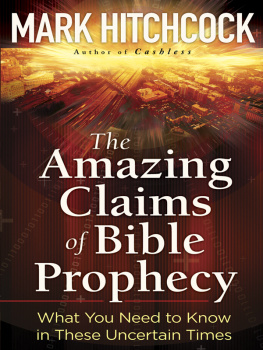
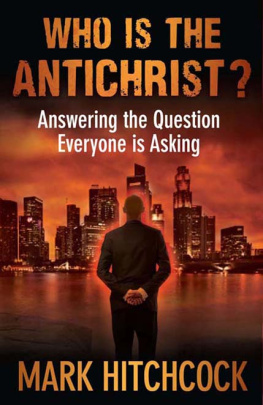


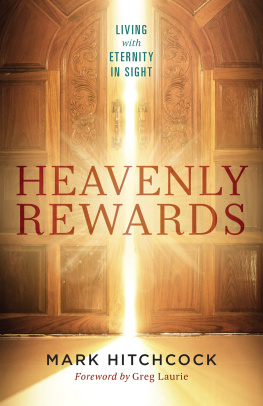
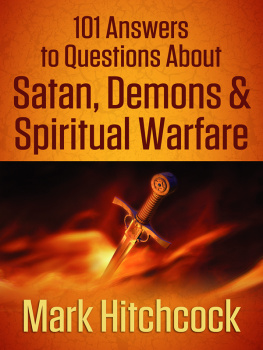
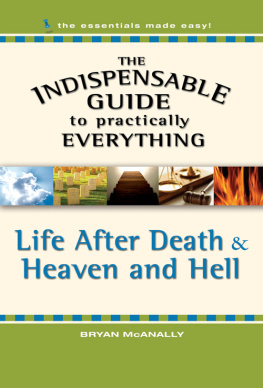
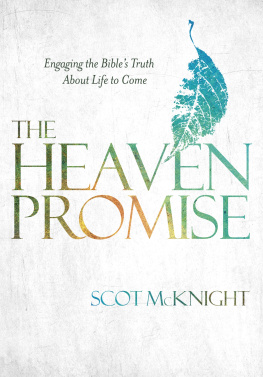
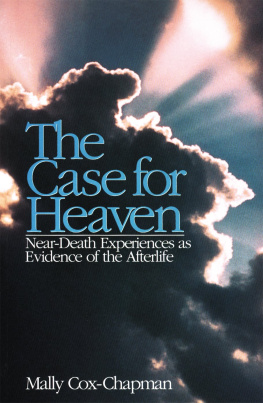
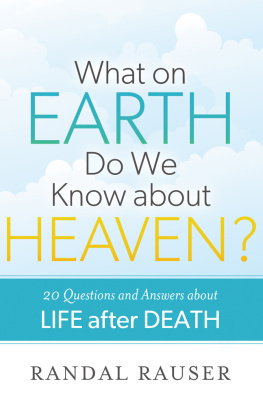

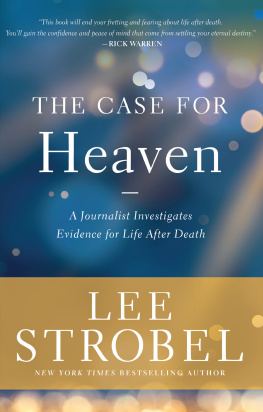
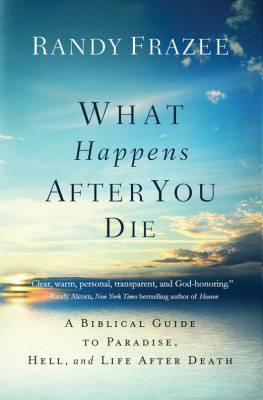
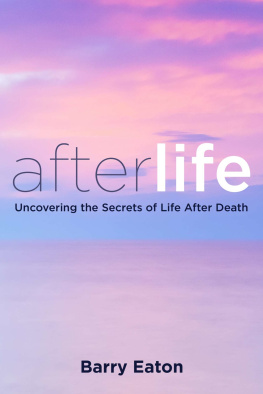
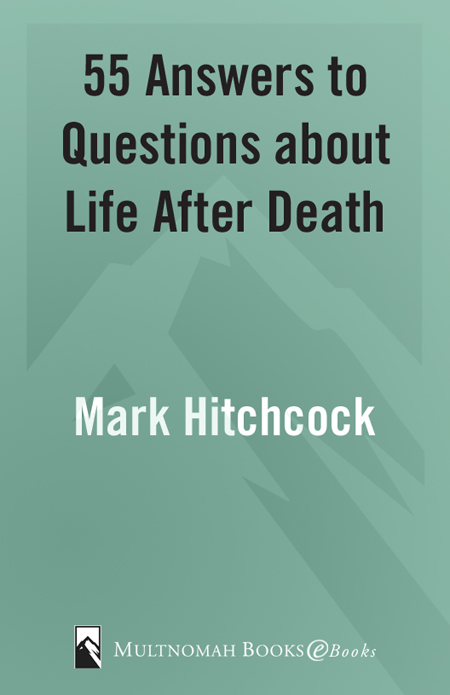
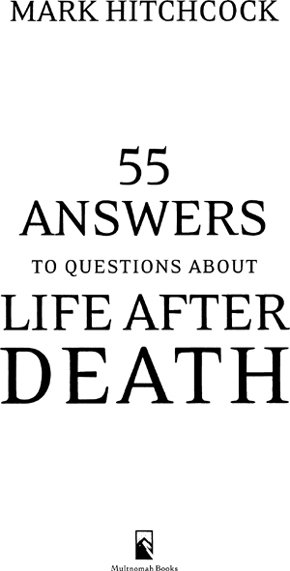
 Introduction
Introduction Unlocking Life's Greatest Mystery
Unlocking Life's Greatest Mystery